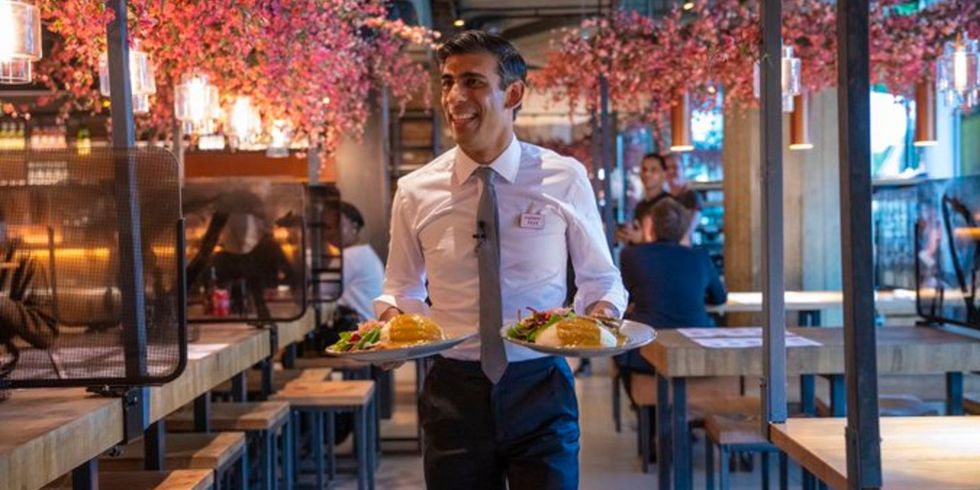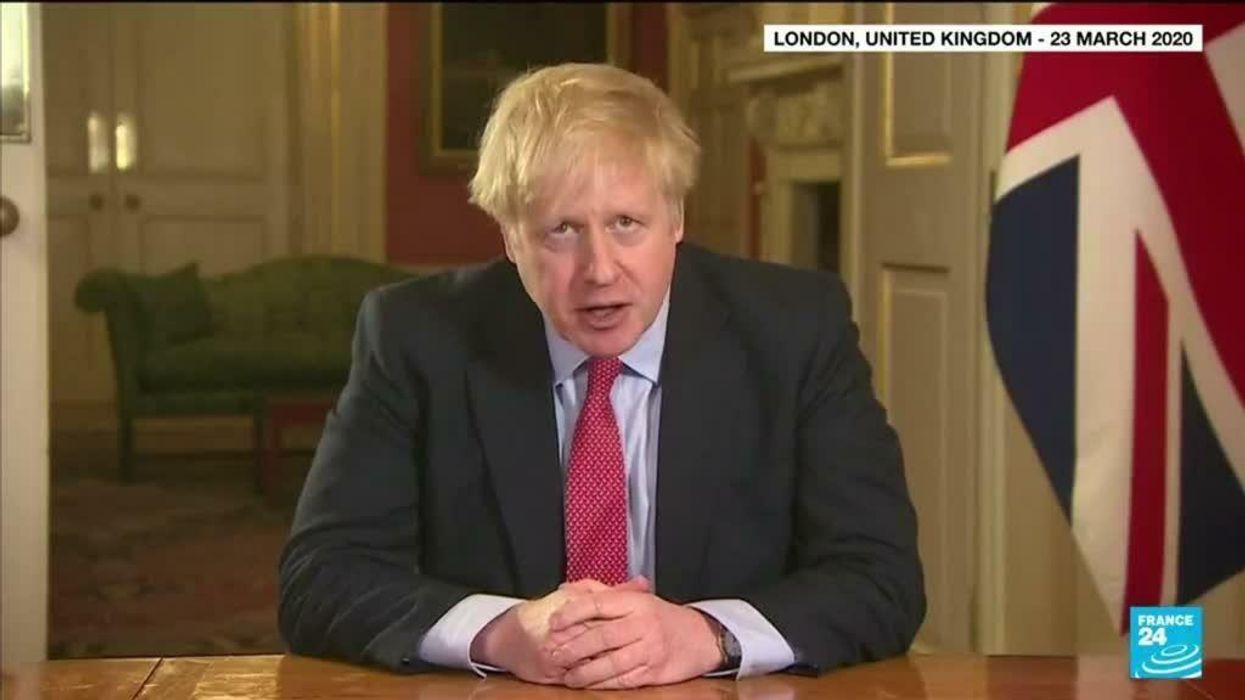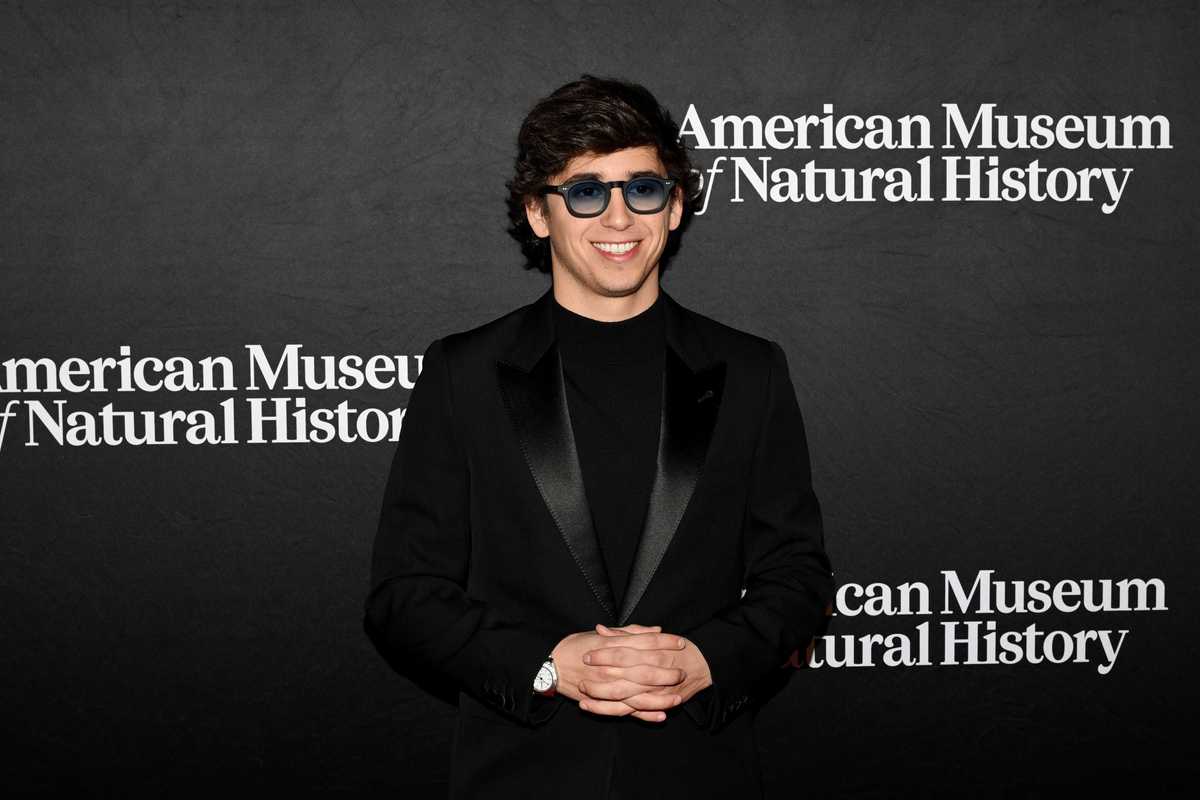Two years ago today, Boris Johnson appeared on our television screens, as gladly received as a rerun of Mrs Brown's Boys and told us to stay at home, please.
The government had cottoned on to the rapid spread of something called coronavirus, and realised severely restricting social contact was the only weapon it had in its arsenal to curb its race to nestle in the lungs of the most vulnerable and - frankly - kill them.
Lockdown was meant to be three weeks of waving to your friends over zoom and plodding about parks but two years on, rapidly changing restrictions - all with their wonderful catchphrases - have only just been abolished in totality in the UK.
Thinking about it, so much has happened in the last two years it's hard to remember all the versions of life we lived through, and not see it as a dystopian fever dream.
Sign up to our free Indy100 weekly newsletter
So here's a happy timeline so we can remember all the ways coronavirus put British people's lives in a chokehold over the last two years.
16 March 2020
Things were looking a little sketchy but the government was flapping about and not really suggesting many solutions. Until Boris Johnson suggested people stop non-essential social contact and travel but stopped short at doing anything concrete to enforce that.
23 March 2020
But one week later the government's response dramatically escalated from "you shouldn't really do that, lads" to a full-scale national lockdown in which people were told not to leave the gaff unless they were exercising (for up to an hour, and close to their homes so no marathons) or to buy stuff. That was essential stuff - food and the like. It's hard to picture it now but entire shelves were roped off in supermarkets to stop people browsing.
And so a nation behind closed doors turned to House Party, Zoom pub quizzes, TikTok, banana bread and Tiger King and waited patiently for life to get back to normal.
16 April 2020
With the three weeks of novelty over, people hoped coronavirus was too. No chance. Johnson returned to our television sets, forcing us to pause Tiger King to let us know lockdown had been extended for a further three weeks.
He said five tests needed to be met before restrictions could be eased, which included stashing up on PPE to meet future demand and ensuring a sustained fall in deaths.
At least the weather was good.
10 May 2020
Things looked slightly better so Johnson came back on the telly again and mumbled about people returning to work but also somehow avoiding public transport to get there and in the week that followed people were allowed to hang out more with their household and even meet one other person outside, at a 2-metre distance.
We were granted the right to unlimited exercise time and the PM also unveiled a conditional plan to get things back to normal by July 2020. Oh, Boris, how little we knew...,
Oh, and lest we forget, this was when the Nando's coronavirus alert system came out.
June 2020
Schools opened, people living alone were allowed to form support bubbles with one other household and after almost three months of only buying essential goods, non-essential shops finally reopened and people hurried to stock up on tat. Masks were also introduced if you can believe we spent so much of the pandemic without them - mandatory for public transport and recommended elsewhere.
People were also allowed to meet up with people from other households in groups of six, at a safe distance.
4 July 2020
As the US celebrated independence day, Johnson decided the UK could too celebrate some sort of independence from Covid. Pubs, restaurants, cinemas, places of worship and hairdressers reopened and people could go on staycations.
Gyms and other leisure places remained closed, though, and you could only meet indoors with one other household. And clubs? Forget about it.
At the same time, the first local lockdown came into force in Leicester and parts of Leicestershire. Awkward.
August 2020

To encourage people to reunite with the world at large amid continued falling cases. Eat Out To Help Out launched, and people got full. The scheme granted everyone vouchers offering 50 per cent off any restaurant meal on Mondays to Wednesdays, capped at £10 per head. This excluded alcoholic drinks.
It was criticised for potentially spreading Covid - who would have thought it?
September 2020
In September 2020, cases started to rise again. Unwilling to pull the lockdown trigger for a second time, the government introduced a pub, restaurant and bar curfew meaning beddy-byes for punters at 10pm.
The policy was immediately ridiculed because it hardly takes an epidemiologist to work out that Covid doesn't only spring into action after 10pm, like Cinderella's cough-triggering cousin.
But at the time, the then health secretary Matt Hancock claimed there was "direct and proximate evidence" for the positive impact of the limits on pubs and restaurants, citing a fall in alcohol-related A&E admissions late at night.
However, he conceded the curfew was a "matter of policy choice" rather than driven by scientific advice, and so the last orders bell rang early, and people still got Covid. Who knew?
In this month, they also reintroduced the rule of six for people meeting up and there was a general sense of unease in the air as well as a whole lot of Covid.
14 October 2020
It was time to do something proper about those rising cases, so the government caused tears to fall by introducing the tier system. Places in the UK were divided into tiers one to three corresponding with the levels of Covid knocking about with one meaning rule of six and curfew and three meaning no indoor socialising.
pubs in Tier 2 were closed completely unless they served "substantial meals" with alcohol.
This started a huge national debate about what constituted a "substantial meal" and the government allowed local councils to make the call.
In particular, the humble Scotch egg became the subject of a tense debate, with ministers and journalists appearing to spend more time debating whether it constituted a meal or a snack than dealing with Covid.
November 2020
We were all as shocked as you probably were to learn that closing the pubs and asking Covid to stay on county lines didn't cut the mustard so Johnson told us to, once more, stay inside for the month of November for a brief hibernation.
Unlike lockdown one, it was fine to meet up with one friend (and one friend only) outside, but only to exercise together - not shoot the breeze and have a laugh - and people were allowed to be outside for unlimited periods, which is just what people wanted in November in England.
Four weeks ticked by and cases started to fall but things wouldn't return back to "normal" in December.
December 2020
Instead, we went back to tiers, this time with a whole extra tier called "four" which was basically lockdown. By the end of the month, most places in England were places in tier four - thanks to the rapidly spreading Kent variant.
Christmas
Let us not forget how chaotic Johnson made Christmas. Just as the troops laid down their arms in WWI for a temporary Christmas truce, Johnson originally thought the UK should do the same - sort of - and said three households could meet up for Christmas. He then backtracked and left people isolating alone, unable to return to their families.
January 2021
Happy New Year? The tiers were scrapped because, well, if you need to put the whole nation into the same one do tiers really exist? The third national lockdown started with no potential end date in sight.
February 2021
Groundhog day time. Just as Johnson had last year set out five tests before restrictions could be lifted, Johnson set out a roadmap for lifting lockdown with four steps. People continued to get their vaccines that began being rolled out a month prior and waited around in the cold, sick of Joe Wicks and his P.E videos.
29 March 2021
Cases fell, jabs were put in arms, and step one came into effect. People were allowed to meet in groups of... you guessed it, six! Outdoors, and with social distancing, of course.
12 April 2021
Step two! Non-essential shops opened, as did pub gardens and restaurants and bars with outdoor dining so people Googled restaurants with outdoor heaters and started to enjoy life again.
17 May 2021
Step three. The weather started to pick up making outdoor socialising bearable so obviously indoor socialising was put back on the table with people allowed to mix inside in groups of six.
The government also made a traffic light system allowing various amounts of international travel depending on how Covidy a foreign country was.
19 July 2021
Step four came into effect. It was originally meant to happen in June but it was delayed for four weeks as the situation had not yet improved as much as was hoped. Clubs opened for the first time in 18 months and people complained about a "pingdemic" as people were told to isolate via an NHS app if they came into contact with the virus, and it turned out loads of people were coming into contact with the virus.
October 2021
As we returned more and more to "normal", the traffic light system was scrapped and replaced with one red list of no-go Covid countries.
December 2021

Until things went to pot. In more evidence that men surely have disproportionate influence in public policy, the government enacted coronavirus Plan B named after emergency contraception (that's the morning after pill) in December 2021.
Covid had rebranded and was cases were rising in its Omicron era and as scientists braced themselves while they figured out how dangerous this version of the virus was, the government decided putting masks on while travelling on public transport and working from home was probably a decent idea while everyone got a booster vaccine.
January 2022
With a thrice-jabbed nation thriving, and Omicron not creating the hospitalisation s**tsorm originally feared, Johnson first scrapped plan B then extended an olive branch to Covid.
From February, we've been 'Living with Covid' - meaning if you come down with the illness you don't have to self-isolate and access to free tests and statutory sick pay has been substantially reduced.
A new variant has been discovered - Deltacron - which sounds like a bad superhero and ministers and scientists have still said their "guidance" is that people don't spray Covid around their offices and friends if they knowingly have it, despite scrapping the legal imperative.
'Living with Covid' won't be without its moral complications then, aside from arguing over whether you or Covid takes the bins out.
Have your say in our news democracy. Click the upvote icon at the top of the page to help raise this article through the indy100 rankings.














